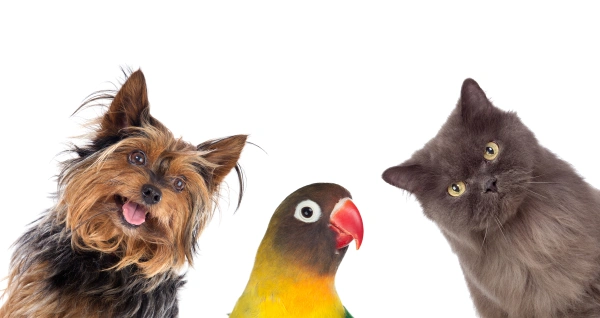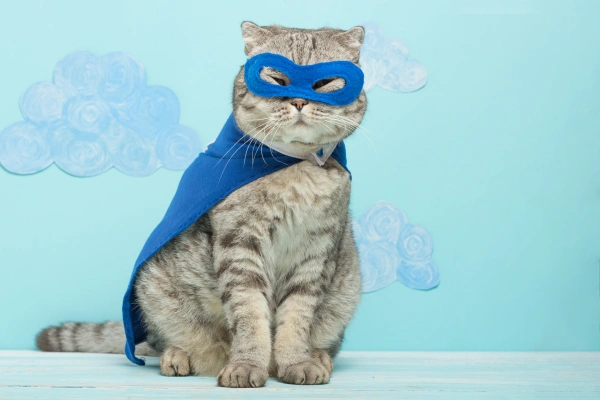15 Techniques on How to Be Funny
Every person likes to stay around people who make them laugh. Being funny is one of the greatest sought after qualities.
Funniness is a delightful skill to have and one that is important to develop. Humour has the ability to make us think and consequently interrupt negative feelings.
What Is Being Funny?
Being funny is possessing the ability to make people laugh. It is both a skill and an art, can be in-born or developed with time through practice.

Enough of defining it, how about we hump on and discover a few tips on how to become more funny!
How to Be Funny
1. Watch Comedy Shows
To improve your sense of humour, watch stand-up comedians, read books with humour or listen to podcasts that make you laugh. There are a lot of funny people out there, like Kevin Hart and Trevor Noah.

Studying funny people, watching stand up, and following the jokes of your taste is a good place to start.
Everyone has a different taste; therefore, take time to experiment, and you will find something of your liking. Immersing yourself in hilarity is a great way to make yourself more funny.
2. Learn Some Jokes
For starters, you can research and look for jokes, gags, hilarious pictures, etc. The internet is very rich with things that can make people laugh.
After you have learned the jokes you have chosen, try them out with friends, or on any occasion, they are apt.
Learn a few different types of jokes because what works at the bar might be inappropriate at a family come together.
3. Spend Time with Funny People
Normally you take on the qualities of your inner circle. Surround yourself with funny people. This will not only make you feel better but also enhance your ability to recognize funny situations hence hone your skills.

Starved of humour, it becomes difficult to step back and see circumstances in a happier way.
4. Be Yourself
The public will find you kinda funny if you are yourself. It is much easier to get people chuckling if you are calm and confident.
Become proficient at expressing things in your voice because just seeing and pointing the humorous side of circumstances without exaggeration and acting silly will make people think of you as funny.
5. Practice
When you are at a social gathering, try making a few jokes. It may not go well at first, but by so doing, you are refining your skills. You have to be willing to take the risk of exposing yourself to an audience that may not get your joke.

Each shot at being funny may not always be successful, but as you practice, you will become an expert in the delivery and timing of the joke.
When a joke has flopped, which is bound to happen once in a while, learn to move on to the next punch line.
6. Watch Live Comedy
When you attend and watch comedians telling jokes on live shows, you get to observe how the audiences react to specific jokes. Distinct from TV shows, live comedy is unedited, and you have the opportunity to collect information that can help improve your own humour.
7. Find a Practice Buddy
Spend time with a friend that laughs at your jokes. He or she helps in accountability as well as honing your humour skills.

Before you share your jokes with an audience, you practice with him or her. This helps you know if your joke is funny or not.
8. Laugh at Yourself
To become more funny, you must never take yourself to be too serious. Laugh at yourself. Some of the heartbreaking moments you have had are, on the flip side, very juicy materials for your humour. Personal tragedy stories tend to make people laugh.
These real-life humorous stories allow you and your audience to laugh at your experience. An example is that tragedy when you forgot to carry your towel to the bathroom, and your kids got home when you were still in the shower. Or when your wardrobe had a malfunction.

It is common to express your frustration at tragic events, but try imagining the same thing happening to someone else, and you will find the ridiculous in the tragic. By doing so, you will also be able to laugh at yourself.
9. Employ Use of Self-Deprecation
This is when a person belittles or makes fun of themselves. Self-deprecating humour requires you to be comfortable with certain aspects of yourself. It works well with people that you know well.

An example of this kind of humour would be someone short (dwarf) making jokes about their height.
It is important to use self-deprecating humour cautiously since it has the possibility of a contrary effect.
10. Observe What Makes Others Laugh
Being sharp-eyed is important if you are going to learn how to become funnier. When you see people laughing, note the things that make them laugh. Paying attention to what other people find funny will improve your sense of humour.
Do not assume that you know what will make your audience laugh because you might end up insulting them.

This should not restrict you from trying different kinds of jokes. Once in a while, when you are feeling adventurous, you could experiment with bad jokes. Some funny bad jokes are so outrageous that they transcend their own awfulness.
These kinds of jokes make people not want to laugh. Every self-respecting part of their intellect would be rebuffing the chuckling impulse, but they can’t help themselves. These kinds of jokes are so horrible that they are actually funny.
An example of a bad joke: Why are there gates around cemeteries? Because people are dying to get in!
11. Don’t Overdo It
You should use jokes sparingly, especially with colleagues and friends. Being funny all the time becomes annoying than humorous. Going overboard will lead to offence, and eventually, your audience will get fed up with you.

Also, if you are telling a funny story, and it is not going well, do not retell it.
Sometimes a joke may have been better in your mind but flops when you tell it. Always remember that you will not always land ten out of ten of the time. What you need is to learn to fail a little better and diffuse awkward moments.
If your audience seems offended, switch to a different topic, one to which they can relate better.
12. Understand Timing and Context
Adequate time has to pass after something negative has occurred so that those hearing the joke no longer feel aggressively threatened by the subject.

However, you should not wait for a long time that the issue becomes irrelevant; therefore, while preparing to use currents events as the topics for your jokes, you need to know about the holding period as well as the end of this time when the happening stops being funny.
13. Don’t Use Belittling Jokes
Unifying humour is therapeutic and allows us to see the bigger picture where hope is a possibility. Demeaning jokes have the potential to make you look obnoxious and mean as opposed to someone with a good sense of humour.

Mimicry also can be very annoying.
14. Avoid Being Judgmental
It is normal for most people to form their judgment about situations. This, however, only leads to a negative viewpoint on what is going on. Once you have formed an opinion on a situation, you cannot be funny.
This is because you can no longer see the larger and hilarious side of it. This is a road you don’t want to take as it makes you negative.
15. Smile and Laugh
Smiles are infectious. You cannot make other people laugh if you cannot smile and laugh yourself. Funny people laugh. Becoming more funny does not only involve making other people laugh. It is, therefore, important to develop the habit of laughing a lot daily.
You do this by finding what is funny in every situation, both good and bad events. For most people, we only reveal our frustration when unfortunate events happen to us or around us. This will only lead to a bad mood the entire day.

Find the ridiculous in heartbreaking, annoying, and tense situations. There is a joke out of the ordinary situations you come across. If you analyze the little events around you, you begin to realize that almost the entirety of what you see in daily life has a funny side.
Every laugh is important. Having a couple of unpretentious laughs every day can help you live longer, enrich your quality of life plus expand your perspective.
Conclusion
It is advantageous to become funny. Humour comes in handy in reducing conflict and strengthening relationship bonds. It increases a person’s attractiveness and boosts creativity.
These 15 techniques will help you to become more funny and retain the attentiveness of your audience. They will always be looking at the brighter side of things during your presentation or performance.
To close, you will have developed a sensitivity to your environment and circumstances that empowers you to visualize the humour that a duller person misses. You will become a magnet for funniness!
About the Author
Eugen Spivak is a multi-award-winning author, business strategist, and a business coach. Eugen is the founder of the Canadian Institute of International Business, an organization focused on a better way to learn business!
Study With Us!
We offer practical courses in various areas of business. Our instructors have at least 10 years of practical experience in their fields.


